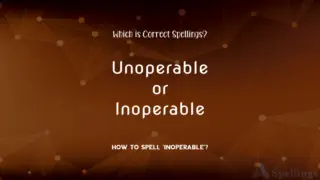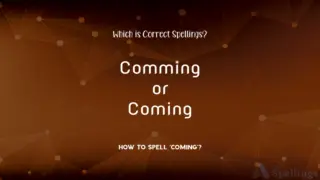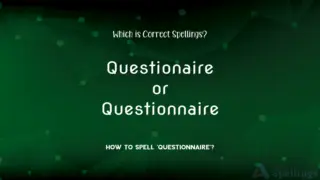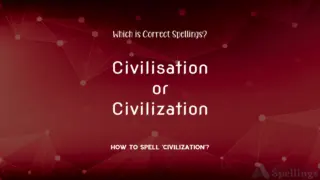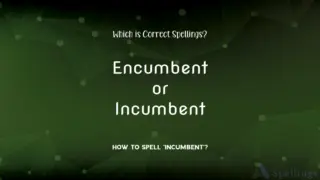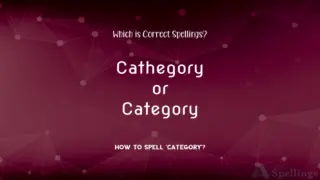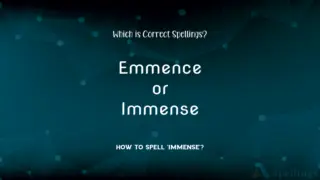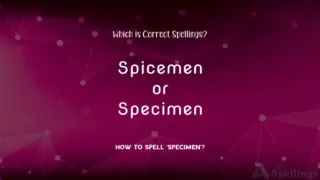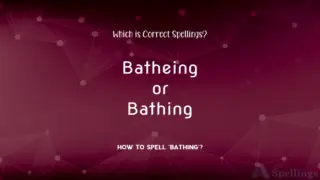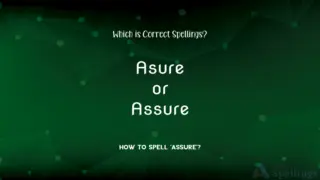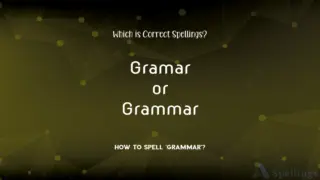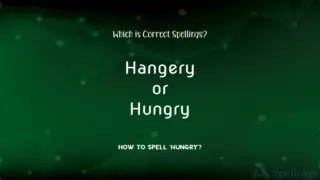Disipline or Discipline: Which is Correct Spellings?
The incorrect spelling is "disipline," while the correct spelling is "discipline," referring to the practice of training people to obey rules or a code of behavior.
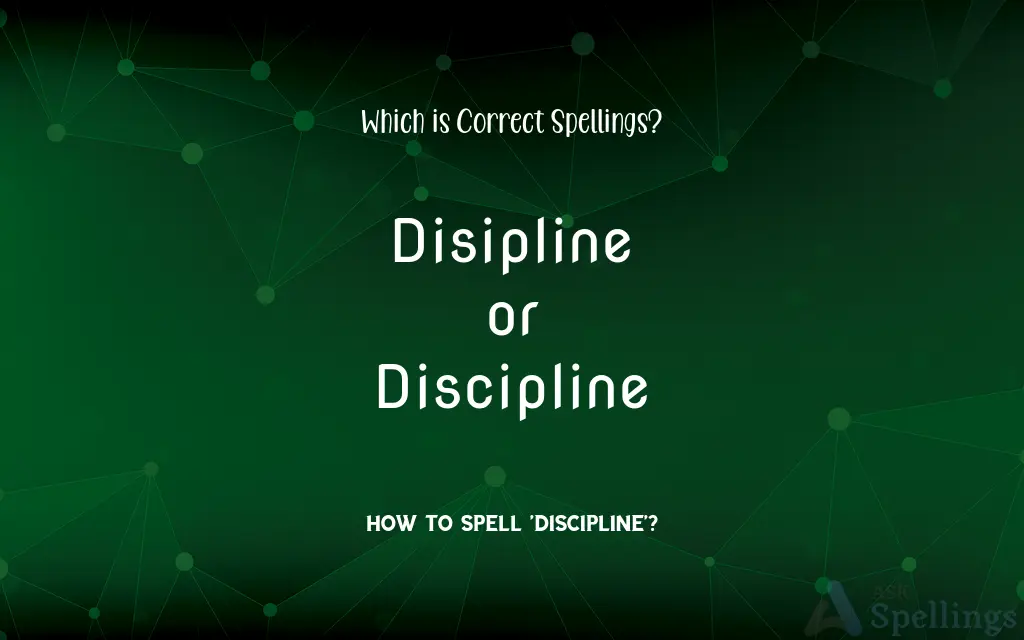
Which is correct: Disipline or Discipline
How to spell Discipline?

Disipline
Disipline Spelling

Discipline
Discipline Spelling
Table of Contents
Is it Disipline or Discipline
Remember that "discipline" contains the word "line," which signifies the straight and narrow path of discipline.
The word "discipline" includes "ci" just like "city," where rules and discipline are necessary.
"Discipline" has the same 'sci' as in "science," which requires discipline to study.
Think of the 'c' in "discipline" standing for "control," which is a key aspect of discipline.
"Discipline" shares its 'sc' with "school," a place where discipline is often taught.
How Do You Spell Discipline Correctly?
Incorrect: Good disipline is crucial for martial artists.
Correct: Good discipline is crucial for martial artists.
Incorrect: The teacher is known for her strict disipline in the classroom.
Correct: The teacher is known for her strict discipline in the classroom.
Incorrect: Her disipline in studying was admirable.
Correct: Her discipline in studying was admirable.
Incorrect: He needs to work on his disipline if he wants to succeed.
Correct: He needs to work on his discipline if he wants to succeed.
Incorrect: Without disipline, it's difficult to maintain a healthy lifestyle.
Correct: Without discipline, it's difficult to maintain a healthy lifestyle.
Discipline Definitions
Punishment intended to correct or train.
The coach used extra laps as discipline for the team's lack of effort.
Training to act in accordance with rules.
Military discipline is rigorous and demanding.
A branch of knowledge or teaching.
Biology is a discipline of science.
A system of rules of conduct.
The school's discipline policy is strict but fair.
Control gained by enforcing obedience or order.
Effective discipline is essential in a classroom.
Discipline Meaning in a Sentence
The new job required a lot of discipline.
Discipline is important for self-improvement.
Her discipline in practice led to success.
She showed great discipline with her diet.
The students learned the value of discipline.
You need discipline to save money effectively.
The discipline of regular exercise is beneficial.
Discipline is key in learning a new language.
It takes discipline to wake up early every day.
They maintained discipline even in tough times.
To master an instrument, you need discipline.
The discipline she learned from karate was useful in life.
He admired the discipline shown by the athletes.
The teacher's discipline helped improve the students' focus.
Learning discipline now will help you in the future.
His parents taught him discipline at a young age.
The school emphasized discipline and hard work.
Good discipline can lead to excellent achievements.
Discipline helps in managing time efficiently.
They used a chart to enforce discipline at home.
The athlete's discipline inspired his teammates.
Discipline helps to resist temptations and distractions.
Without discipline, the team would fall apart.
Homework is a form of academic discipline.
Discipline and patience go hand in hand.
Discipline is more about consistency than intensity.
Discipline in studying now will pay off later.
The discipline of daily writing sharpens the mind.
She applied the discipline of mindfulness to her life.
Discipline is not about punishment, but about learning self-control.
Discipline Idioms & Phrases
Self-discipline
The ability to control one's feelings and overcome one's weaknesses.
It takes a lot of self-discipline to study every night.
Lack of discipline
The absence of order or control.
The team’s lack of discipline cost them the game.
Enforce discipline
To impose order.
The new manager was hired to enforce discipline in the workplace.
Child discipline
The methods used to prevent behavioral problems in children.
Positive reinforcement is one strategy for child discipline.
Under discipline
Subject to a set of rules of behavior or order.
The recruits were under strict discipline during the training.
Maintain discipline
To keep order and control.
The teacher knows how to maintain discipline in the classroom.
Break discipline
To act against the rules.
Soldiers who break discipline face serious consequences.
Academic discipline
A branch of knowledge that is taught and researched at the college or university level.
Sociology is an academic discipline.
Instill discipline
To develop disciplined behavior in someone.
Martial arts can instill discipline in children.
Discipline measures
Actions taken to enforce rules.
The school has implemented new discipline measures.
Military discipline
The strict and precise adherence to regulations characteristic of military life.
His years in the army taught him the value of military discipline.
Industrial discipline
The regulation and order maintained in an industrial working environment.
Industrial discipline is important for safety and efficiency.
Financial discipline
The practice of managing one's finances in a controlled and sensible manner.
Financial discipline is key to avoiding debt.
Discipline process
The official steps followed to deal with someone who has broken rules.
He was subject to the company’s discipline process after the error.
School of discipline
A situation that teaches you to behave in a controlled way.
That challenging project was a real school of discipline for the team.
Discipline committee
A group of people responsible for enforcing rules.
The discipline committee will review the incident.
Discipline plan
A predefined strategy for maintaining control and order.
Every classroom should have a discipline plan.
Cross-discipline
Involving two or more different subjects or areas of knowledge.
The cross-discipline study opened up new areas of research.
Discipline case
A situation where someone's behavior is being reviewed for possible punishment.
He was involved in a discipline case last year.
Parental discipline
The methods parents use to teach their children proper behavior.
Parental discipline is often a topic of heated debate.
Common Curiosities
What is a stressed syllable in discipline?
The first syllable is stressed in "discipline."
What is the verb form of discipline?
"Discipline" itself can be used as a verb; other forms include disciplines, disciplined, disciplining.
What is the root word of discipline?
The root word of "discipline" is the Latin "disciplina" meaning "instruction given, teaching, learning, knowledge."
How do we divide discipline into syllables?
Discipline is divided into syllables as dis-ci-pline.
Is discipline a noun or adjective?
"Discipline" is primarily a noun but can also be used as a verb.
Is discipline a collective noun?
No, "discipline" is not typically used as a collective noun.
What is the pronunciation of discipline?
Discipline is pronounced as /ˈdɪs.ɪ.plɪn/.
How many syllables are in discipline?
There are three syllables in "discipline."
Is discipline an adverb?
No, "discipline" is not an adverb.
Is the word discipline is imperative?
The word "discipline" can be used in the imperative form, e.g., "Discipline yourself every day."
Which vowel is used before discipline?
Typically, the article "a" is used before "discipline," as in "a discipline problem."
Is discipline an abstract noun?
Yes, when used as a noun, "discipline" can be considered an abstract noun as it refers to a concept or practice.
Is discipline a negative or positive word?
"Discipline" is neutral; it can have positive connotations when referring to self-control or negative connotations when associated with punishment.
Is the word “discipline” a Direct object or an Indirect object?
"Discipline" can be a direct object, e.g., "The teacher applies discipline in the classroom."
What part of speech is discipline?
"Discipline" can be used as both a noun and a verb.
What is the second form of discipline?
The second form of "discipline" as a verb is "disciplined."
What is the third form of discipline?
The third form of "discipline" as a verb is "disciplined."
Is discipline a vowel or consonant?
"Discipline" is a word that contains both vowels and consonants.
What is another term for discipline?
Another term for "discipline" could be "control," "regulation," or "punishment" depending on the context.
What is the opposite of discipline?
The opposite of "discipline" could be "disorder" or "indiscipline."
Which determiner is used with discipline?
Determiners such as "the," "this," "that," "my," "your," etc., can be used with "discipline."
Why is it called discipline?
It is called "discipline" because it refers to the practice of training people to obey rules or a code of behavior.
What is the first form of discipline?
The first form of "discipline" as a verb is "discipline."
What is the singular form of discipline?
"Discipline" is the same in both singular and plural forms as a noun.
Which article is used with discipline?
The articles "a" or "the" can be used with "discipline," depending on whether it is used in a specific or general sense, e.g., "a discipline issue," "the discipline of history."
Is the discipline term a metaphor?
"Discipline" can be used metaphorically, depending on the context.
Which preposition is used with discipline?
Prepositions such as "in," "of," and "with" can be used with "discipline," e.g., "in the discipline of psychology," "a man of discipline," "to deal with discipline."
Is discipline a countable noun?
When used as a noun, "discipline" can be countable or uncountable. As an academic subject, it can be countable (e.g., several disciplines).
Is the word discipline Gerund?
The gerund form of "discipline" is "disciplining."
How is discipline used in a sentence?
E.g., Discipline is important for maintaining order in the classroom.
What is the plural form of discipline?
The plural form of "discipline" is "disciplines" when referring to different kinds or fields of study or practice.
Which conjunction is used with discipline?
Conjunctions such as "and," "but," or "or" can be used with "discipline," depending on the context.
Share Your Discovery

Previous Spelling
Paralell or Parallel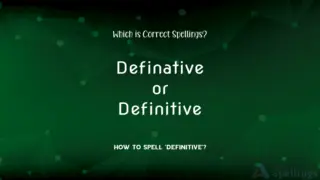
Next Spelling
Definative or Definitive
